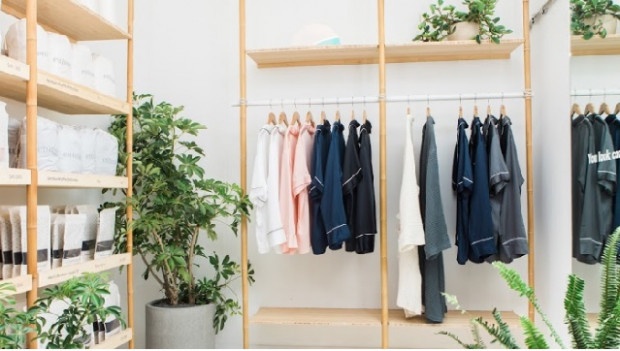Direct-to-consumer bedding brand Ettitude wants to put its bamboo lyocell sheets in the hands of more shoppers in the hope that once they feel the silky fabric and hear about the cooling and eco-friendly properties for themselves, they’ll be converted to customers. The online retailer opened its first pop-up store in Los Angeles this month, and next year it will expand its partnerships with hotels and airlines to expose more people to its sheets, duvets, pillows, bath towels, pyjamas and robes
bes in non-retail environments.
“It’s very important for people to touch our bedding textiles,” Phoebe Yu, Ettitude’s founder and CEO, told Inside Retail.
“We can do a good marketing job and have beautiful videos, photos and copywriting to try to explain what it is, but it doesn’t compare to having people be able to touch it,” she said.
Ettitude has dipped a toe into physical retail at various times since launching online in Australia in 2014, but this is the first time the brand has invested significantly in a bricks-and-mortar fitout and point-of-sale system for the longer term.
Running through the end of the year, the store is recording its inventory and sales on the same platform as the website, Shopify, so Ettitude can analyse similarities and differences in shopping behaviour. So far, in-store purchases are split evenly across bedding, bath and accessories, while sheet sets account for around 70 per cent of online sales.
“This is really an experiment to gather as much data as we can,” Yu said. “We’ll be able to see how bricks-and-mortar fits into our whole strategy…whether we should pop up in another city, whether we should use it as a standalone or just an assist channel for our online store.”
The retailer also is gathering data on how many people walk past the store, how many people enter it, where they spend time in-store, whether they make a purchase, buy something later online or sign up for its emails.
The direct-to-consumer trend
The pop-up is located on Abbot Kinney Boulevard, a buzzy street in Venice, California, selected for the relatively high level of foot traffic it attracts in the famously car-clogged city and the other direct-to-consumer brands with storefronts in the vicinity, including Allbirds and Everlane.
“A lot of direct-to-consumer brands are opening permanent stores,” Yu observed, “even ones that said they never would, are having to eat their words now.”
According to Yu, physical retail was never a “bad” channel in the past, it simply wasn’t efficient. But many younger brands today are using it as an assist channel. It doesn’t drive the majority of sales, but it does serve to educate customers about a product or allow them to touch it, and it tends to lift online sales.
“Other direct-to-consumer brands have proved once they open a store in their top selling cities, it lifts their online sales because customers have more trust in you,” she said.
In addition to physical retail, Yu is exploring collaborations with hotels and airlines. Ettitude products are already available in the Qantas and HSBC ‘points’ stores, but next year the brand will begin to work with partners more directly.
The retailer also is looking to launch new product categories and textiles. It’s on track to do $10 million in revenue this year, and says the main aim is not to be profitable, but rather pursue growth.

